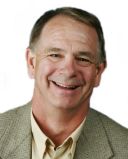Leadership
An Eye on Leadership: Seeing the Gift in Everyone
Leading across cultures: What does it take?
Posted February 25, 2022 Reviewed by Lybi Ma
By Jerry Toomer and Julia North
Accounting may not sound that exciting, but Wahida Saeedi sees it differently. She loved math from a young age and had always wanted to pursue a career in the medical-healthcare space. Yet, while taking accounting in college, a professor asked her why she wasn't pursuing accounting full-time. She was curious. After taking more courses, she found that business was much more dynamic and more immediately relevant than science.
She worked in public accounting as an auditor, which was tough and pushes work-life balance. Auditors are shoved into back rooms, and they work a lot. At one point, she was so burned out she asked the universe for something else. One evening, while driving home on I-69 in Fishers, she looked over and there was Roche. She checked out the healthcare and biotech company online, and there was a financial analyst position open. Some 17 years later, she is still with them heading accounting for North America, Central America, and Latin America. She also teaches accounting at Butler University.
Here are some of her thoughts on leadership.
Tell us about a time when you had to stretch your leadership skills
When I moved into a leadership role at Roche, I was able to immediately apply what I learned in graduate school. I was told to let go of one employee in the team I inherited. When I spoke to him, I learned that he was getting a second master’s degree. Something didn’t add up. I spent time getting to know him and gaining his trust. I gave him a project that impacted a process involving several stakeholders. He excelled. In the end, he just needed direction and support. Something as simple as giving him the space, recognizing his gifts and potential, and providing him a chance was what he needed. He became a key leader on my team and a high potential employee. Imagine how many like him we have lost.
How have you accomplished “leading from wherever you are?"
One thing that I’ve truly enjoyed is being able to see the gift in everybody: to see the talent, and the positive attributes they can bring. Over the years, I’ve had the privilege of working with a widely diverse group of people across the world. For me, it’s fulfilling to be able to tap into people’s natural and creative selves and to be able to see them blossom. It doesn’t matter if you’re leading five people informally, or if your title is Senior Director; at the end of the day, everyone just wants to be seen, heard, and valued. I think the gift behind being catalytic and “leading from wherever you are,” is that we can help others feel valued, provide them space, and then watch them perform at their best.
What are some of the key learning points from entering your international position?
I said I wanted an international assignment: I spoke up and got it. People always ask me how I made that happen and I tell them that I made sure that I told people. You’re in charge of your development. For many years, I made the mistake of thinking that if you work hard, and do a good job, you’ll get noticed. But that’s not always the case. I chose a mentor at Roche, and she helped me gain confidence. I learned to speak up and not take things personally. That was very liberating. I raised my hand, received an international assignment, and freaked out a little before moving to Switzerland. I always thought I was flexible and adaptable because I had immigrated to the US with my family but the move to Basel was hard. I was completely outside of my comfort zone and was stretched in so many ways. I had to be extremely creative about how I made things happen because I was unfamiliar with how things were done there. It took time, but I was able to successfully navigate and learn and grow. And if I had to do it again, I still would. I am very grateful for the experience.
What were your key learning points from working in Dubai?
Dubai was phenomenal. I led an international and diverse group of people in a volatile region. The office and finance staff were still fairly new there. My years of Roche experience proved to be valuable. There was a woman on my team there who was an incredible talent but kept getting bypassed for new opportunities. One day I went to her and I asked her if she wanted to make a key presentation and she said she had never done it before. Despite the excitement and fear in her eyes, she said yes and after some practice and coaching, she did a great job. I wonder how many other talented people have never been given an opportunity to shine.
Who were your key early influences?
My key influencers in my life have been my parents and my two grandfathers. My paternal grandfather, although uneducated himself, was a strong advocate for education. He sent my father to school in the city by himself when he was only 13. That root of valuing education is so deeply ingrained in me. My father was a professor, and my mother a teacher. When we came to America, my parents always said we were very lucky to be in the land offering the best education in the world. I remember even as a young girl, I promised myself that I was at least going to get a master’s degree. My love of learning definitely comes from my parents.
When we came to the US, I began in the third grade speaking only three English words: yes, no, and hello. I recall sitting in class, paying full attention, while some other kids goofed off. I remember wondering if they even realized what an opportunity they had to live in America, where you can get a great education. That is how much the value of education was instilled in me.
On my mom’s side, my grandfather was a businessman and one of the hardest-working people I have known. He had to flee his home twice due to foreign invasions. Despite these challenges, his values of hard work, honesty, ethics, and compassion to those who didn’t have as much never faltered. I definitely know I got the hard work gene from my mom’s side.
What else have you learned?
One thing I’ve learned over the years is to try nearly anything, so what if you fail? I cannot tell you how many times I’ve raised my hand for something and then panicked. But I still went ahead; I succeeded sometimes and failed at other times. With discomfort comes growth. I’ve been surprised to meet people who are capable but sometimes reluctant to try something due to fear of failure. This is where I try to give people a friendly nudge when I see their potential.
Another thing I’ve learned regards feedback. Feedback is a gift. If someone cares enough to give you feedback, take it. I don’t need to accept all of it, but I can listen and reflect and take what I can from it. I always assume the person giving me feedback has positive intent. Imagine if we have a blind spot and never know it because no one has ever said anything.
References
The Catalyst Effect, Toomer et al, Emerald Publishing, 2019.




